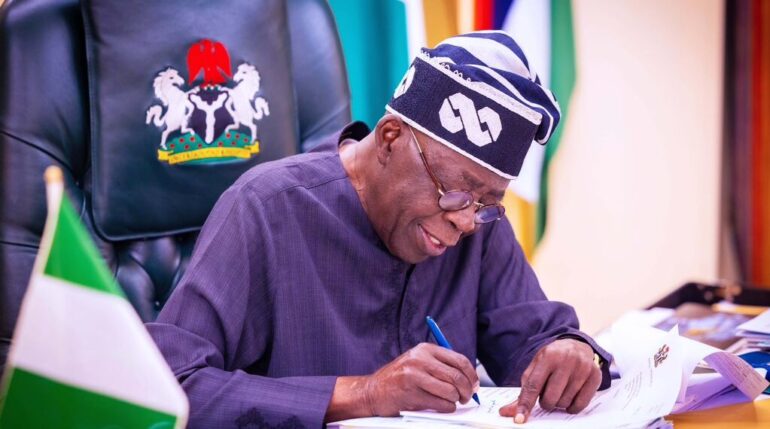President Bola Tinubu has approved the introduction of a 15 per cent ad-valorem import duty on petrol and diesel imports into Nigeria as part of efforts to protect local refineries and stabilise the downstream petroleum market, a move expected to raise pump prices.
In a letter dated October 21, 2025, and made public on October 30, Tinubu directed the Federal Inland Revenue Service (FIRS) and the Nigerian Midstream and Downstream Petroleum Regulatory Authority (NMDPRA) to begin immediate implementation of the tariff under a new “market-responsive import tariff framework.”
The approval, conveyed in a letter signed by the President’s Private Secretary, Damilotun Aderemi, followed a proposal from FIRS Executive Chairman Zacch Adedeji, who described the duty as essential to aligning import costs with domestic market realities.
Adedeji explained that the measure forms part of broader reforms to boost local refining, ensure price stability, and strengthen the naira-based oil economy, in line with Tinubu’s Renewed Hope Agenda for energy security and fiscal sustainability.
“The core objective is to operationalise crude transactions in local currency, strengthen domestic refining, and ensure a stable, affordable fuel supply,” Adedeji wrote.
He warned that the existing misalignment between locally refined fuel prices and import parity rates has created market instability, discouraging local producers. According to him, imported products often undercut domestic refiners, especially amid foreign exchange and freight fluctuations.
“Government must protect consumers and local producers from unfair pricing practices while ensuring a level playing field that attracts investment,” he added.
Under the new tariff structure, the 15 per cent duty is projected to increase the landing cost of petrol by about ₦99.72 per litre, pushing estimated Lagos pump prices to around ₦964.72 ($0.62) per litre — still below regional averages such as Senegal ($1.76), Côte d’Ivoire ($1.52), and Ghana ($1.37).
The policy comes as Nigeria accelerates efforts to cut fuel import dependence and expand domestic refining capacity. The 650,000-barrels-per-day Dangote Refinery in Lagos has begun producing diesel and aviation fuel, while modular refineries in Edo, Rivers, and Imo have started small-scale petrol output.
Despite these gains, imports still account for around 67 per cent of Nigeria’s petrol supply.


